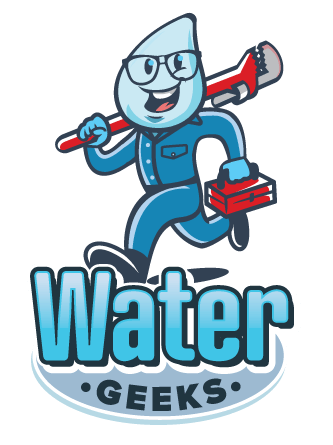Hard Water in New England
What is Hard Water?
Hard water is a common issue in many households in New England face. Essentially, Hard water is water that contains a high mineral content, particularly calcium and magnesium.
This mineral-rich water can be found in both well water and municipal water supplies. While not harmful to your health, hard water can have detrimental effects on your home, appliances, your body, and your budget. When limescale accumulates within pipes, it can diminish water pressure and flow, which will often worsen over time.
According to the Energy.gov:
0–3 gpg is considered soft water
3.5–7 gpg is considered ideal
>7.5 gpg is considered regarded as hard water
The Negative Effects of Hard Water
Hard water quality issues can impact various areas of your home:
Laundry: Hard water doesn't mix well with detergent, causing your washing machine to have less effective cleaning cycles. Mineral deposits can also cause detergent residue, resulting in yellowing or graying of light and white items, stiff towels, and more.
Bathing: Chemicals and minerals in water can affect skin and hair, leading to dry skin, irritation, or breakouts. Conditions like itchy skin, eczema, and psoriasis can often times worsen when using hard water. Additionally, hard water can diminish the effectiveness of soap and shampoo, leaving you feeling unsatisfied with your shower experience!
Cleaning: If you notice film or water stains on dishes, flatware, or glassware from the dishwasher, it may be due to your water quality. Mineral buildup and chemicals in water can make cleaning difficult due to the formation of soap scum.
Appliances: Hard water or water with high chemical content can damage water-using appliances like garbage disposals, dishwashers, coffee makers, water heaters, washing machines, and ice makers.
Plumbing: Chemicals and minerals in water can harm your home's pipes and plumbing fixtures. Hard water minerals can cause scale buildup or accumulate in pipes over time, reducing water flow, increasing clogs, and stressing pipes and fixtures.
How to Soften the Water in your Home
To combat the effects of hard water, many households turn to water softeners.
A water softener is a device that removes the excess minerals from your water, making it "soft." This is typically achieved through a process called ion exchange, where the hard minerals are swapped for sodium or potassium ions, helping to alleviate the negative impacts of hard water on your home and your health.
Water Geeks will travel to your home and perform a water test, then recommend exceptional water softener solutions based on your specific needs. A one-time installation cost a water softener system is around $1200 - $1800.
